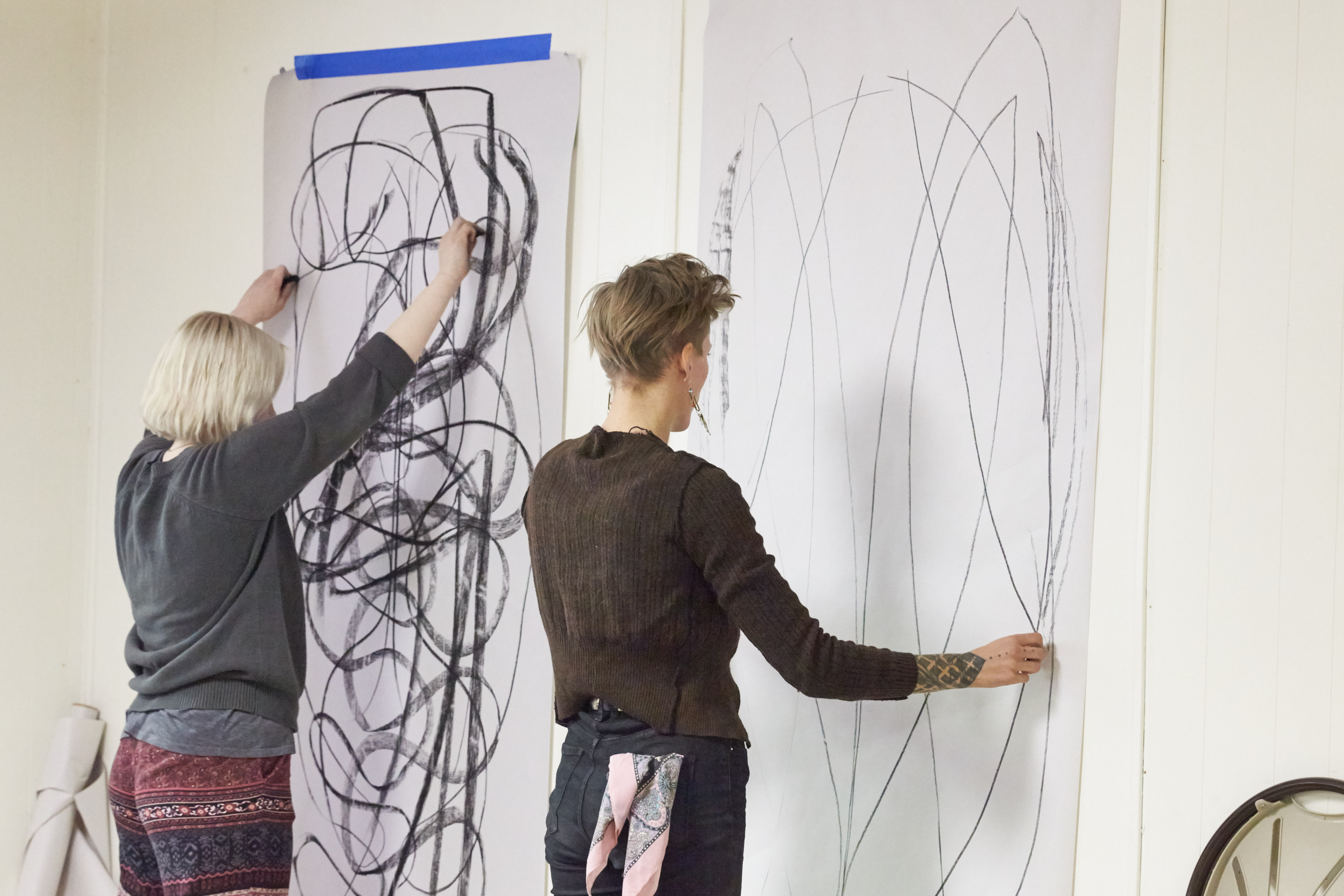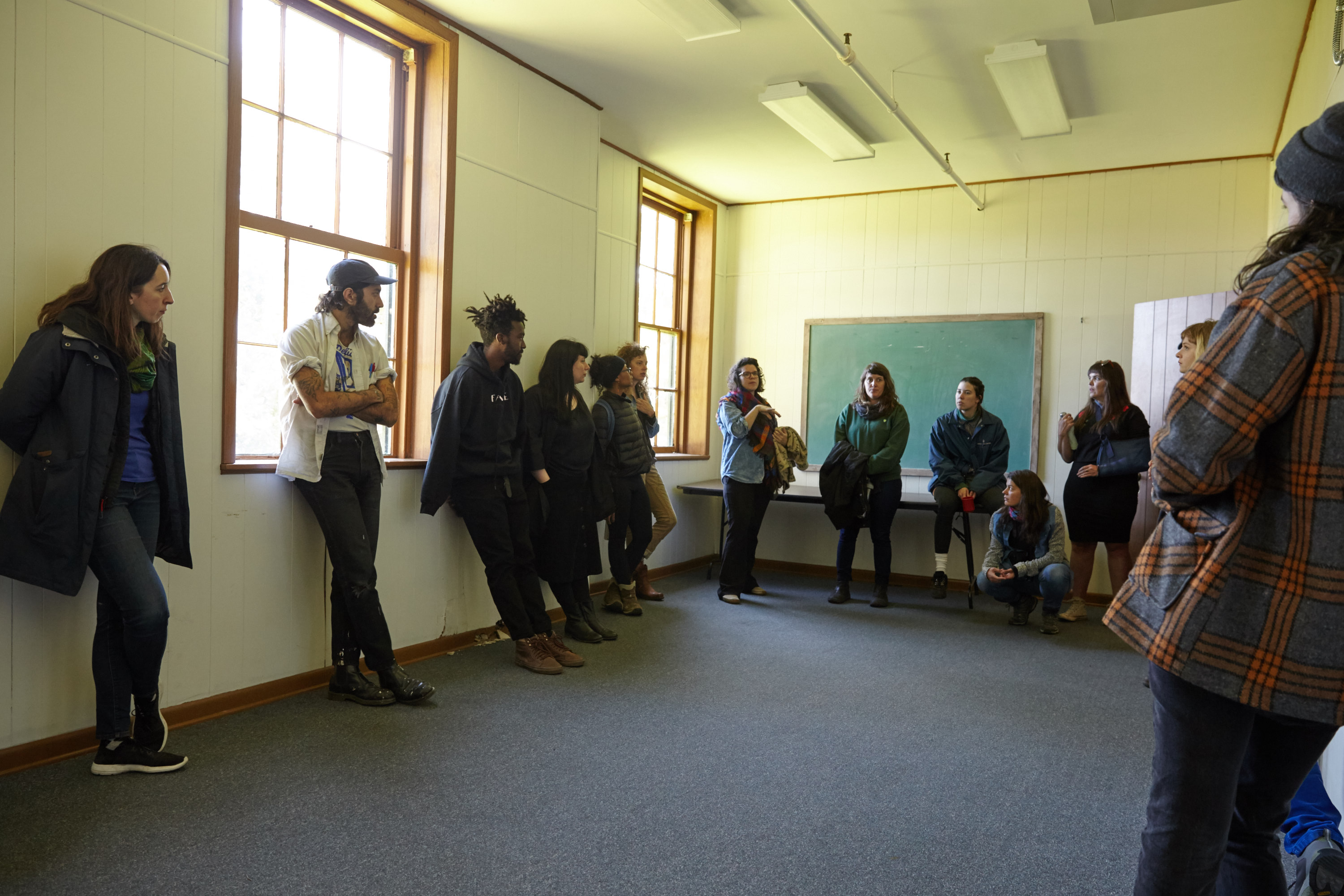Imagine stepping into a discussion about shamanic practices and dreaming. Or picture collaborating on a mural, learning turntablism, or exploring the microverse through fermentation and visualization. Now, picture immersing yourself into these experiences for a full week or more. Sound intriguing? It all exists at the
School of the Alternative (formerly the Black Mountain School), an arts- and creativity-focused education program for adults that channels the spirit of Black Mountain College. Now heading into its third year, SOTA is currently accepting faculty and student applications for its 2018 classes, which run in one, two, and three week sessions from May 11-30 in Black Mountain.
In the fall of 2015, a group of creative thinkers gathered at the former site of Black Mountain College, the now-legendary bastion of free thinking and non-hierarchical learning that educated personalities as varied as John Cage and Merce Cunningham. They decided to start a program linked to the ideals of the school and rolled out a schedule the following summer.
Many of the goals they set out in that first brainstorming session have been realized, and the school has gained worldwide recognition, mostly through word of mouth and press coverage, for its creative programming. The school takes 40 participants, both teachers and students. The distinction between the categories is fluid, as it was with the original College. Teachers are encouraged to take classes, and students are encouraged to teach. They also live together during their time on campus. (Though staying on campus is not an absolute requirement, as part of the school's mission is accessibility, it is very strongly encouraged.)
School founders Chelsea Ragan and Adam Void were drawn to the area partly because of Black Mountain College's legacy, according to Heidi Gruner, the school's Acting Director. They used their connections to bring over 20 artists, curators, and educators to the area to plan the first session of the school. The program they developed revolves around the idea of what Gruner calls "passion-based learning."
"We don’t proscribe at all," she says. "We just call for teachers to apply. If someone seems passionate about sharing and excited about the program, we try to get them to come and teach."
 Liz Anslie's class, Anti-Product Drawing and Painting. Photo by Suzi Sadler
Liz Anslie's class, Anti-Product Drawing and Painting. Photo by Suzi Sadler
The ideal faculty member will want to teach something not offered by a traditional institution. "We probably wouldn't be as excited about someone submitting a Sculpture 101 class as we would about something like collaborative weaving," says Gruner. (Incidentally, a collaborative weaving class, taught by textile artist
Ricki Dwyer,
has been offered at the school.)
Once they're running, classes often inevitably intersect. "Last year we built a room-sized camera obscura for one woman’s class on ways of seeing," says Gruner, "and on the final day a movement class danced in front of it, and a drawing class came in and hung paper up and drew the dancers. It was a moment when every class was collaborating, and all of it was fusing into one."
Those are sweet moments for the organizers. "The point to get everyone collaborating and being creative together," Gruner notes. "We encourage the idea you can self-educate, that there are lots of ways to learn outside of an institution or through getting taught by someone. We call School of the Alternative an 'experiment in collaborative learning.' Even in classes that are lecture-based, there's always a new way of being in a classroom and of learning together."
The class structure is unique. School of the Alternative offers "solid," "liquid," and "gas" classes. "Solid" classes tend to be more structured, meeting at fixed times and with a sequential approach to learning. "Liquid" courses are more self-directed and collaborative, though they are still led by faculty. "Gas" classes are student-driven and free form.
Students at School of the Alternative must be over 18, but the range of ages attending varies greatly after that. The youngest participant so far has been 19, the oldest in his 70s. Applicants have been far flung, from as far as Israel and Portugal. The school hopes to increase local participation. "We had around people from North Carolina come the first year," says Gruner. "We do pretty grassroots marketing, so it's mostly been about getting the word out."
 Classroom tour during on day one, 2017. Photo by Suzi Sadler
Classroom tour during on day one, 2017. Photo by Suzi Sadler
Other goals for this year? "For everything to run smoothly," laughs Gruner. "A goal for me personally is for everyone to have a space to feel heard. We want to give everyone an opportunity to be involved in any level they want to. They can come in as student and come back next fall to our working retreat as a contriubutor. Or they might want to serve on the board in a rotating position, or come back and teach. And during the experience, we want everyone to feel heard and safe, and to leave with the knowledge that anything you want to know you can know.
"There are so many different ways to teach, share, and build community. And community is crucial. The end of every program is so hard. You become so close with people you’ve only known for a month. That shows the power in this."
This year, tuition costs $400 per week, and the school will offer half and full need-based
scholarships. Faculty members are currently unpaid but can attend classes for free (the school hopes to offer a stipend in the future).
Want to apply? Here are the important deadlines:
-
January 25: Faculty applications due
-
February 15: Student scholarship applications due (students applying for scholarships will also be considered with general student applications if desired)
-
February 25: General student applications due
Fill out a 2018 applications here.
Check out
the full list of 2017 classes here.
Want to support SOTA?
Donate here.